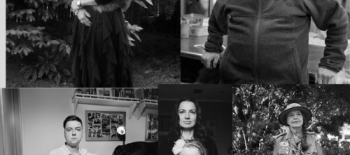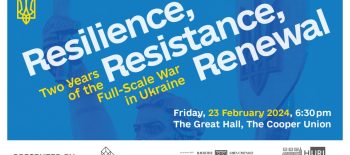BETWEEN MUSIC AND DIPLOMACY: THE FOUNDING FATHERS OF WWI AMERICAN-POLISH RAPPROCHEMENT
Friday, February 2, 2018
6pm
THE KOSCIUSZKO FOUNDATION
WASHINGTON, DC OFFICE
2025 O street NW Washington, DC 20036
Join us for two lectures by Polish and American historians on aspects of Poland and America’s World War I history, accompanied by a concert of music by the virtuoso and statesman Ignacy Jan Paderewski.
Before and during World War I, Poland’s condition was treated as an internal matter for Russia, Germany and Austria-Hungary. Thanks to numerous and strong military, social, cultural as well as diplomatic efforts, Polish independence was suddenly reconsidered by the Great Powers. The United States played an increasingly large role in this process, particularly after entering the War in April 1917. The phenomenon of a European nation torn apart into three partitions for over a century was so unique and unprecedented that peace-loving US President Woodrow Wilson included Polish case into his famous Fourteen Points–his vision for a European settlement after the War. Meanwhile, the pianist Ignacy Jan Paderewski became one of the most recognized Poles in the US and embarked on a new career in diplomacy. The cooperation of these two men, strengthened by the help of many other supporters of American-Polish rapprochement on both continents, succeeded in securing an independent Poland and laid the groundwork for the countries’ modern relationship, as well as pro-American sentiments among throughout the following century.
Meanwhile, the residents of Buffalo, New York were mobilized for action in Europe and on the home front during World War I. For Polish-Americans, the focus was not only on the US war effort, but also on providing support for Poles in the combatant countries in Europe. They also advocated for Polish independence. Dr. Francis E. Fronczak (1874-1955) played a leading role in relief efforts in Buffalo for Polish war victims. As an officer in the U.S. Army Medical Corps, he provided medical care for the Polish Army in France. A long-time friend of Ignacy Jan Paderewski, Dr. Fronczak was also appointed a member of the Polish National Committee in Paris in 1918.
These presentations will be followed by a piano concert by pianist and harpsichordist Magdalena Baczewska, featuring original compositions by Ignacy Jan Paderewski.
Dr. Tomasz Pudlocki, Associate Professor at the Jagiellonian University’s Institute of History in Kraków, specializes in the history of Galicia from a socio-cultural point of view, as well as the history of women and intellectual history. Two years ago, he published his latest book on Polish-British intellectual connection in the interwar period (Ambassadors of Ideas: The Contribution of Intellectuals to the Promotion of a Positive Image of Poland in the United Kingdom from 1918 to 1939, Historia Iagellonica, Kraków, 2015). A member of the Commission on the History of Women (at the Polish Academy of Science in Warsaw) and the Commission on the History of Science (at the Polish Academy of Arts and Sciences in Kraków). President of the Society of Friends of Learning in Przemysl (2011-2013), Kosciuszko Foundation Grantee (2012-2013), Fulbright Scholar and Visiting Professor at Daemen College in Amherst, NY (2015/2016), and receipient of a Best Young Scholar (Under 35) fellowship from the Polish Ministry of Higher Education (2013-2016).
Dr. Andrew Kier Wise is Professor of History and Chair, Center for Polish Studies at Daemen College (Amherst, NY). He teaches courses in World and European History, with a special focus on Poland and Russia. He has authored two monographs and several book chapters and articles on the history of Poland. His current projects include a monograph on the radical political activism of Buffalo residents Boris and Anna Reinstein (in collaboration with Dr. Penny Messinger), as well as research on the activities of Dr. Francis E. Fronczak of Buffalo during World War I. He currently serves as a board member for the Polish Arts Club of Buffalo, the Permanent Chair of Polish Culture at Canisius College, and the Kosciuszko Foundation, Western New York.
Born in Poland, Magdalena Baczewska has enjoyed a multifaceted career as a pianist, harpsichordist, educator, recording artist, producer, and an administrator. She has performed with the San Francisco Symphony and China National Symphony, among others. She has appeared in concert with violinist Joshua Bell and collaborates extensively with Oscar- and Grammy-winning composer Tan Dun. As artistic director of BlueSleep Music, Baczewska produced music for the MetroNaps EnergyPod®, popularized by Google. In collaboration with BlueSleep®, a medical team specialized in research and treatment of sleep disorders, Baczewska recorded the best-selling albums Music for Dreams (over 25,000 copies sold). Performances have taken her to Carnegie Hall, Davies Symphony Hall in San Francisco, the National Center for the Performing Arts in Beijing, Salle Cortot in Paris, Moores Opera House in Houston, Merkin Hall and Steinway Hall in New York, and others. As an avid educator, Baczewska has given piano master classes at Beijing Central Conservatory; Grassland International Music Festival in Hohhot, Inner Mongolia; the International Keyboard Institute and Festival in New York; and the Hong Kong Academy for Performing Arts. An international piano competitions winner, she is also a recipient of the Outstanding Achievement Award from the Polish Minister of Culture. Baczewska holds degrees from Mannes College, The New School for Music (B.M., M.M.), and the Manhattan School of Music (D.M.A). She is currently Director of the Music Performance Program and Lecturer in Music at Columbia University.
This event is co-presented by The Polish Cultural Institute New York and The Kosciuszko Foundation.



